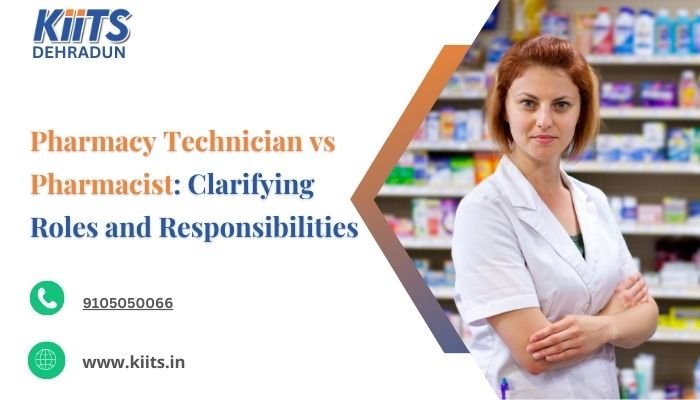Introduction
Understanding the difference between a technician and a pharmacist is crucial for anyone considering a career in pharmacy or those looking to utilize pharmacy services effectively. While both positions are integral to the healthcare system, they have distinct roles and responsibilities. In this article, we will explore the key differences between these two, highlighting their unique contributions to patient care.
Roles
Pharmacy Technician Roles

Technicians play a supportive role in the pharmacy setting. They assist pharmacists by performing tasks that do not require the professional judgment of a licensed pharmacist. This includes preparing medications, managing inventory, and providing customer service.
Responsibilities
Medication Preparation

One of the primary responsibilities of a technicians is to prepare medications. This includes measuring, mixing, packaging, and labeling prescriptions according to the instructions provided by the pharmacist.
Inventory Management
Technicians are responsible for managing the inventory of medications and supplies. They ensure that the pharmacy is well-stocked, order new supplies when necessary, and check for expired medications to ensure they are removed from inventory.
Customer Service
Providing excellent customer service is a key responsibility of a pharmacy technicians. They assist customers with their medication needs, answer questions, and help resolve any issues related to prescriptions or insurance.
Administrative Duties
Pharmacy technicians also handle various administrative tasks, such as processing insurance claims, maintaining patient records, and managing the pharmacy’s computer systems.
Pharmacist Roles
Pharmacists are healthcare professionals with advanced education and training in medication therapy. They are responsible for ensuring the safe and effective use of medications, providing patient counseling, and collaborating with other healthcare providers to optimize patient care.
Pharmacist Job Duties

Medication Therapy Management
Pharmacists are responsible for medication therapy management, which involves reviewing patients’ medication regimens to ensure they are safe, effective, and appropriate for their conditions. They make recommendations to optimize therapy and prevent adverse effects.
Patient Counseling
A significant part of a pharmacist’s job duties is providing patient counseling. Pharmacists educate patients about their medications, including how to take them, potential side effects, and interactions with other drugs.
Clinical Interventions
Pharmacists perform clinical interventions by collaborating with doctors and other healthcare providers. They help develop treatment plans, adjust medication dosages, and monitor patient progress to improve health outcomes.
Regulatory Compliance
Ensuring regulatory compliance is another critical responsibility of pharmacists. They must adhere to all laws and regulations governing the practice of pharmacy, including maintaining accurate records and ensuring the pharmacy operates within legal guidelines.
Educational and Certification Requirements
Pharmacy Technician Education
Technicians typically need a high school diploma or equivalent, and some may complete a postsecondary education program in pharmacy technology. Certification, while not always required, is highly recommended and can enhance job prospects. Certification is obtained through organizations such as the Pharmacy Technician Certification Board (PTCB).
Pharmacist Education
Becoming a pharmacist requires extensive education and training. Pharmacists must earn a Doctor of Pharmacy (Pharm.D.) degree from an accredited pharmacy school. After completing their degree, they must pass a series of exams to become licensed to practice. Continuing education is also required to maintain licensure.
Difference Between Pharmacist and Pharmacy Technician
Scope of Practice
The scope of practice is one of the most significant differences between pharmacist and technicians roles. Pharmacists have a broader scope of practice that includes making clinical decisions, providing patient care, and collaborating with other healthcare providers. Technicians, on the other hand, focus on supportive tasks and assist pharmacists in their duties.
Decision-Making Authority
Pharmacists have the authority to make clinical decisions regarding medication therapy, including prescribing certain medications and modifying treatment plans. Technicians do not have this authority and must work under the supervision of a pharmacist.
Salary and Job Outlook
The salary and job outlook for pharmacists and pharmacy technicians also differ significantly. Pharmacists typically earn higher salaries due to their advanced education and responsibilities. Technicians earn less but can enter the workforce more quickly due to shorter training periods. Both roles, however, are in demand and offer stable career opportunities.
Professional Development
Pharmacists have more opportunities for professional development and advancement within the healthcare field. They can specialize in areas such as oncology, pediatrics, or geriatrics, and pursue leadership roles within their organizations. Technicians can also advance their careers by obtaining additional certifications and taking on supervisory positions.
Conclusion
Understanding the distinct roles and responsibilities of pharmacy technicians and pharmacists is essential for anyone considering a career in pharmacy or those seeking to utilize their services. While pharmacy technicians perform supportive tasks that ensure the smooth operation of the pharmacy, pharmacists take on more advanced roles that require clinical judgment and patient care. Both positions are vital to the healthcare system, working together to ensure the safe and effective use of medications.
FAQs
Q.What are the primary differences between pharmacist and technician roles?
Ans)Pharmacists have a broader scope of practice, including making clinical decisions and providing patient care, while technicians perform supportive tasks under the supervision of a pharmacist.
Q.What are the main responsibilities of a technicians?
Ans)The responsibilities include medication preparation, inventory management, customer service, and administrative duties.
Q.What job duties do pharmacists have?
Ans)Pharmacist job duties include medication therapy management, patient counseling, clinical interventions, and ensuring regulatory compliance.
Q.What education is required to become a pharmacy technician?
Ans) Technicians typically need a high school diploma or equivalent, and may complete a postsecondary program in pharmacy technology. Certification is also recommended.
Q.How does the salary differ between pharmacists and technicians?
Ans)Pharmacists generally earn higher salaries due to their advanced education and responsibilities, while technicians earn less but can enter the workforce more quickly.








